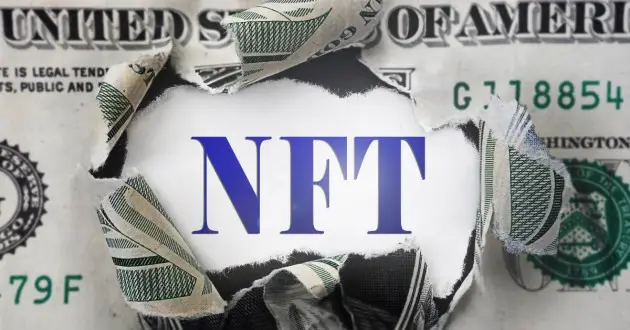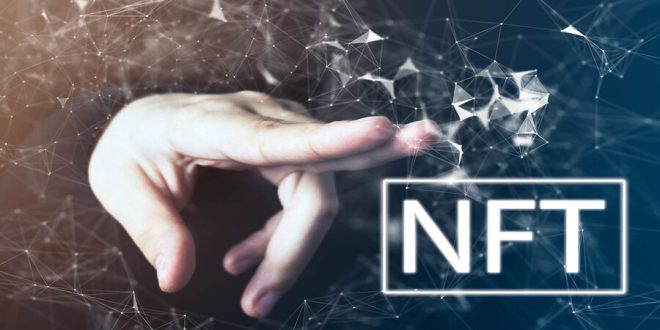In recent years, Non-Fungible Tokens (NFTs) have gained significant popularity in the digital world. NFTs allow individuals to own unique digital assets, including artwork, music, collectibles, and more. However, along with the increasing interest in NFTs, there are also certain threats to NFT ownership that individuals need to be aware of. This article aims to explore the common threats to NFT ownership and provide practical steps to mitigate them effectively.
Understanding NFT Ownership
What is an NFT?
NFTs, or Non-Fungible Tokens, are digital assets that utilize blockchain technology to establish ownership and authenticity. Unlike cryptocurrencies such as Bitcoin or Ethereum, which are fungible and can be exchanged on a one-to-one basis, NFTs are unique and indivisible. Each NFT represents a distinct item, making it irreplaceable and scarce.
How NFT Ownership Works
NFT ownership is based on blockchain technology, typically implemented on the Ethereum blockchain. When an NFT is created, a unique token is assigned to it, along with information about its ownership and characteristics. These ownership records are stored on the blockchain, providing a transparent and immutable ledger of ownership history.
The Importance of NFT Ownership
NFT ownership is crucial as it establishes provenance, authenticity, and scarcity of digital assets. It allows creators and collectors to demonstrate ownership rights, protect their intellectual property, and potentially monetize their creations through sales, auctions, or royalties.
Common Threats to NFT Ownership

- Counterfeit NFTs
Counterfeit NFTs pose a significant threat to the NFT market. Unscrupulous individuals may attempt to create counterfeit versions of valuable NFTs and deceive unsuspecting buyers. These counterfeit NFTs often mimic the appearance and metadata of the original, leading buyers to believe they are acquiring an authentic digital asset.
- Unauthorized Use and Reproduction
NFT owners face the risk of unauthorized use and reproduction of their digital assets. Once an NFT is sold, it does not prevent others from viewing or sharing the content associated with it. The risk of unauthorized use and reproduction can lead to loss of control, decreased value, and potential copyright infringement.
- Security Breaches and Hacks
NFT ownership is vulnerable to security breaches and hacks. Hackers can target digital wallets or marketplaces where NFTs are stored, attempting to gain unauthorized access to valuable assets. If successful, they can transfer or steal the NFTs, leaving the original owners at a significant loss.
- Lack of Legal Protection
Currently, the legal framework surrounding NFT ownership is still evolving. While some countries have started recognizing NFTs as a form of property, there are still gaps in legislation and enforcement. This lack of legal protection leaves NFT owners susceptible to disputes, fraud, and inadequate recourse in case of infringement or theft.
- Ownership Transfer Issues
Transferring ownership of NFTs can sometimes be complex and prone to errors. If the transfer process is not executed properly, it may result in the loss of ownership or disputed claims. These ownership transfer issues can create uncertainty and hinder the smooth transaction of NFTs between parties.
Mitigating Threats to NFT Ownership
To safeguard NFT ownership and mitigate the aforementioned threats, it is essential to adopt proactive measures. By following these steps, individuals can enhance their protection and minimize the risks associated with NFT ownership:
Research and Verify Authenticity
Before purchasing or trading an NFT, conduct thorough research to verify its authenticity. Examine the background and reputation of the creator, check the associated metadata, and validate any claims made about the uniqueness of the asset. Online communities and platforms dedicated to NFTs can provide valuable insights and verification services.
Utilize Secure Wallets and Marketplaces
Choose reputable and secure wallets and marketplaces to store and transact NFTs. Opt for platforms that prioritize security measures such as two-factor authentication, encryption, and cold storage options. By using trusted platforms, you can minimize the risk of security breaches and unauthorized access to your NFTs.
Understand Smart Contracts
Smart contracts play a crucial role in NFT transactions. Take the time to understand how smart contracts function and review the terms and conditions embedded within them. Familiarize yourself with the rights and limitations associated with the NFT you own or intend to purchase. This knowledge will help you make informed decisions and protect your ownership rights.
Educate Yourself on Copyright Laws
Being aware of copyright laws and intellectual property rights is essential for NFT owners. Understand the legal implications of using, reproducing, or displaying NFTs that you own or acquire. Respect the rights of creators and ensure compliance with copyright regulations. Staying informed can prevent unintended violations and potential legal issues.
Seek Legal Counsel if Needed
In complex situations or when dealing with high-value NFTs, consider seeking legal counsel. An attorney specializing in intellectual property and blockchain technology can provide valuable guidance, draft contracts, and assist with dispute resolution. Consulting legal professionals can help protect your NFT ownership rights and ensure compliance with applicable laws.
Leveraging Community Audits
Participating in community audits is a proactive approach to staying informed about potential threats in the NFT space. NFT communities and forums often conduct audits of projects and marketplaces to identify vulnerabilities, scams, or suspicious activities. These community-driven audits rely on the collective knowledge and expertise of community members who meticulously examine the technical aspects, smart contracts, and overall legitimacy of NFT projects. By staying engaged and contributing to these audits, you can gain valuable insights into the security practices of different projects and make more informed decisions when it comes to purchasing or investing in NFTs.
Protecting Your Wallet and Private Keys
Securing your digital wallet and private keys is paramount to protecting your NFT ownership. Your wallet holds the access keys to your digital assets, and any compromise can result in the loss of your NFTs. It is essential to use reputable wallet providers and ensure that your wallet is encrypted and password-protected. Consider utilizing hardware wallets that store your private keys offline, making them less susceptible to online threats. Regularly back up your wallet and store the backup in secure locations, such as external devices or encrypted cloud storage. By taking these precautions, you can minimize the risk of losing your NFTs due to wallet vulnerabilities or unauthorized access.
Embracing Multi-Signature Authentication
Multi-signature authentication (multi-sig) is an additional layer of security that can enhance the protection of your NFT assets. Multi-sig wallets require multiple signatures (approvals) from different authorized individuals to initiate transactions. By setting up a multi-sig wallet, you distribute control among multiple parties, reducing the risk of a single point of failure or compromise. This feature adds an extra level of security to your NFT ownership, making it more challenging for attackers to gain unauthorized access to your assets.
Being Cautious of Third-Party Integrations
When interacting with NFT platforms or marketplaces, it’s crucial to be cautious of third-party integrations. Some platforms offer integrations with external services, such as portfolio trackers or price analysis tools. While these integrations can provide convenience and additional functionality, it’s essential to thoroughly research and vet the security practices of these third-party services. Unauthorized access to these integrations can potentially lead to the compromise of your NFT assets. Always choose reputable and trusted integrations, and regularly review the permissions granted to external services.
Engaging in Continuous Education
The NFT space is dynamic and constantly evolving. Staying informed and educated about the latest security practices, technological advancements, and regulatory developments is vital for safeguarding your NFT ownership. Follow reputable sources, industry experts, and communities dedicated to NFTs to stay up-to-date with emerging trends and potential threats. By staying informed, you can adapt your security measures accordingly and make well-informed decisions when it comes to managing your NFT assets.
Diversifying Your NFT Portfolio
Diversification is a fundamental principle of risk management, and it applies to NFT ownership as well. Instead of concentrating all your investments in a single NFT, consider diversifying your portfolio across multiple assets. By spreading your investments across different categories, artists, or projects, you can reduce the impact of any potential losses or underperforming NFTs. Diversification allows you to participate in various markets and potentially benefit from the success of multiple assets. However, it’s important to conduct thorough research and due diligence before investing in any NFT to ensure the quality, authenticity, and potential value of the assets in your portfolio.
Engaging in Due Diligence
Before purchasing an NFT, conducting due diligence is crucial. Thoroughly research the creator or artist behind the NFT, their reputation, and track record. Examine their previous works, market demand, and community feedback to gain insights into their credibility and potential for future success. Scrutinize the associated metadata and verify the authenticity of the NFT. Additionally, assess the project’s whitepaper or documentation to understand the underlying technology, roadmap, and future plans. By engaging in due diligence, you can make informed decisions and minimize the risks associated with investing in NFTs.
Staying Informed About Market Trends
The NFT market is dynamic and influenced by various trends. Staying informed about market trends, such as emerging artists, popular collections, or new platforms, can provide valuable opportunities for NFT ownership. Follow industry news, attend virtual events, and engage with the NFT community to stay updated on the latest developments. By staying informed, you can identify potential investment opportunities, stay ahead of market shifts, and make informed decisions based on current market dynamics.
Managing Emotional Decisions
Emotions can influence investment decisions, including those related to NFT ownership. It’s essential to manage emotional impulses and make rational decisions based on research, analysis, and risk assessment. Avoid making impulsive purchases or panic selling during market fluctuations. Establish a long-term investment strategy and stick to it, considering your financial goals, risk tolerance, and overall portfolio diversification. By managing emotional decisions and maintaining a disciplined approach, you can navigate the NFT market more effectively and reduce the impact of short-term volatility on your portfolio.
Regularly Evaluating Your NFT Portfolio
Regular evaluation of your NFT portfolio is crucial to ensure its alignment with your investment goals and evolving market conditions. Assess the performance of your NFTs, track their market value, and consider making adjustments if necessary. Some NFTs may appreciate significantly in value, while others may underperform or become less relevant over time. By regularly evaluating your portfolio, you can identify opportunities to sell, trade, or acquire new assets that better align with your investment strategy. This active portfolio management approach can help optimize your NFT ownership and maximize potential returns.
Conclusion
As the NFT market continues to grow, it is essential for individuals to be aware of the common threats to NFT ownership and take proactive measures to mitigate them. By understanding NFT ownership, recognizing the potential risks, and implementing the recommended strategies, NFT owners can safeguard their assets, protect their investments, and contribute to the overall growth and stability of the NFT ecosystem.

I’m a highly experienced and successful crypto author who has helped thousands of people to invest in cryptocurrencies. I have a good knowledge and experience in the industry, and I have always been up-to-date with the latest developments. I’m a highly respected member of the crypto community, so if you are looking for someone to help you navigate the world of cryptocurrencies, then you can always contact me.
 Crypto Print
Crypto Print

